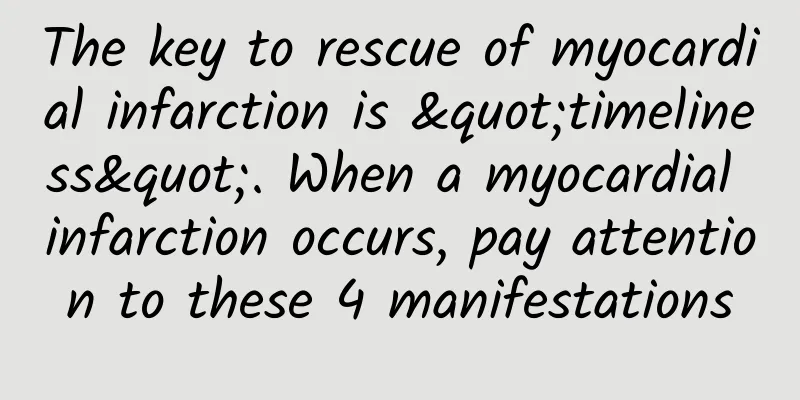[Health Lecture] Hypertension and kidney disease: a hidden "two-way rush" crisis
![[Health Lecture] Hypertension and kidney disease: a hidden "two-way rush" crisis](/upload/images/67eff4140e1ff.webp)
|
In people's pursuit of a healthy life, chronic kidney disease is quietly becoming a hidden health threat. According to authoritative data, about 850 million people worldwide suffer from chronic kidney disease, a shocking number. The causes of its onset are complex and diverse, and hypertension is one of the important factors that cannot be ignored. Clinical studies have shown that about 25% of chronic kidney disease is caused by hypertension. Long-term high blood pressure will cause excessive pressure on the blood vessels of the kidneys, resulting in damage to the kidney structure and function. As the disease progresses, the kidneys gradually lose their normal metabolic and excretion functions, and the health defense line is in jeopardy. Today, let us take a deeper look at the hidden "two-way rush" crisis between hypertension and kidney disease. 1. How do hypertension and kidney disease affect each other? In our body, high blood pressure and kidney disease are like a pair of dangerous "partners", affecting each other and posing a huge threat to health. 1. Effects of hypertension on kidney disease Our kidneys are like a sophisticated filter, filled with densely packed small blood vessels, which are responsible for filtering out waste and excess water from the blood and excreting it into urine. When blood pressure is elevated for a long time, just like the water pressure in a water pipe is too high, these small blood vessels in the kidneys will be under tremendous pressure. At first, the small blood vessels will try to adapt to this high pressure and gradually become thicker. But over time, they will be overwhelmed and damaged. The blood vessel walls become thicker and the lumen becomes narrower, resulting in poor blood circulation. Without adequate blood supply, the kidneys cannot work properly, and the function of the kidneys will gradually be damaged. Clinical data show that about 25% of chronic kidney disease is caused by high blood pressure. If long-term high blood pressure is not effectively controlled, it may eventually develop into renal failure, which is what we often call uremia, and patients have to rely on dialysis or kidney transplantation to maintain their lives. 2. Effect of kidney disease on hypertension When the kidney is diseased, it releases some substances to regulate blood pressure. However, due to impaired kidney function, these regulatory mechanisms will fail. For example, renin secreted by the kidney can maintain stable blood pressure under normal circumstances, but when the kidney is diseased, the secretion of renin will be disordered, leading to high blood pressure. In addition, the excretion function of the kidney decreases, and excess water and salt in the body cannot be excreted in time. These substances accumulate in the body, which will increase blood volume, just like filling the blood vessels with more water, and blood pressure will naturally increase. This type of high blood pressure caused by kidney disease is called renal hypertension, and about 50% of patients with chronic kidney disease will have hypertension. 2. What is Hypertensive Nephropathy Hypertensive nephropathy is a disease caused by long-term hypertension that damages the kidney structure and function. As we all know, the kidney is an important excretory organ of the human body. It is composed of countless tiny blood vessels and nephrons, which bear the heavy responsibility of filtering blood, excreting metabolic waste and excess water. Under normal circumstances, the renal blood vessels can maintain stable blood flow and pressure to ensure the normal functioning of the kidneys. However, when blood pressure is at a high level for a long time, just like the water pressure in the water pipe is continuously too high, the blood vessels of the kidneys will bear the brunt. Under the impact of high pressure, the blood vessel wall gradually thickens and hardens, and the lumen becomes narrow, which leads to a decrease in blood flow through the kidneys. The various nephrons of the kidneys cannot get enough nutrients and oxygen supply, and thus cannot perform the filtering and excretion functions normally. Over time, the tissue structure of the kidneys is destroyed, and the function continues to decline, eventually developing into hypertensive nephropathy. Early patients may only show symptoms such as increased nocturia and microproteinuria. As the condition worsens, they will gradually develop large amounts of proteinuria, decreased renal function, and even renal failure. 3. Once you suffer from hypertensive nephropathy, how to prevent and control it Once you suffer from hypertensive kidney disease, active prevention and control are crucial, which affects the quality of life and physical health. The following methods are simple and practical. 1. In terms of lifestyle, you must strictly control your diet. (1) Reduce sodium salt intake. The daily salt intake per person should not exceed 5 grams. Avoid eating high-salt foods such as pickles and pickled meats, because excessive sodium will increase the burden on the kidneys and increase blood pressure. (2) Control fat intake, choose healthy vegetable oils, eat less fried foods, lower blood lipid levels, and reduce kidney metabolic pressure. (3) Appropriately increase the intake of vegetables and fruits to ensure adequate vitamins and dietary fiber, which will help maintain normal body metabolism. (4) In addition, you should insist on moderate exercise, such as aerobic exercise such as walking, jogging, and Tai Chi, for at least 150 minutes per week. Exercise can promote blood circulation, enhance physical fitness, and help lower blood pressure, but be careful to avoid excessive fatigue. 2. In terms of treatment, strictly following the doctor's instructions for medication is the key. (1) It is extremely important to take antihypertensive drugs strictly according to the time and dosage prescribed by the doctor. Do not increase, decrease the dosage, or stop taking the medication at will. (2) At the same time, other risk factors such as blood sugar and blood lipids should be actively controlled. For example, patients with diabetes should use glucose-lowering drugs in a standardized manner, and patients with abnormal blood lipids should take lipid-lowering drugs. 3. Regular check-ups are the "beacon" for patients with hypertensive nephropathy. Monitoring blood pressure fluctuations, renal function indicators such as serum creatinine and urea nitrogen, and protein content in urine routine tests can allow doctors to accurately capture subtle changes in the condition and adjust treatment strategies in a timely manner. Once abnormal indicators are detected, rapid intervention can nip kidney damage in the bud. 4. Maintaining a good attitude is also very important. Try to avoid falling into negative emotions such as anxiety and tension for a long time. Because excessive mental stress will cause blood pressure fluctuations and aggravate the condition. You can relax your body and mind by listening to music, chatting with friends, etc. As long as you actively take preventive and control measures, you can effectively delay the progression of hypertensive nephropathy and improve your quality of life. Author: Bian Kaixin, Ma Jun, Shen Hua, Wen Dongwei Unit: Tongren Hospital Affiliated to Shanghai Jiaotong University School of Medicine Image: Qianku.com About the first author: Bian Kaixin, nurse, deputy head nurse of the hemodialysis room, graduate student, works in the hemodialysis room of Shanghai Tongren Hospital, has been engaged in blood purification nursing for 5 years and is good at blood purification nursing. |
<<: Blood sugar tips: the body's sweet "signal light"
>>: New research! Constant intestinal problems? IgG antibody diet can revitalize the intestines
Recommend
What medicine is good for cleaning the genitals and reducing inflammation
Regular cleaning of the genitals is a key step in...
What is Golden Heart Chlorophytum? What are the uses of Golden Heart Chlorophytum?
The leaves of the Golden Heart Chlorophytum are e...
When does a girl's voice change?
As girls grow older, they will gradually enter pu...
What should I do if I have dysmenorrhea due to blood deficiency? These Chinese medicine prescriptions are very effective
If a female friend suffers from blood deficiency,...
What causes cervical cancer?
In fact, it is very necessary for every woman to ...
What's wrong with delayed menstruation?
Under normal circumstances, if menstruation has n...
What to do if you have ureteral stones? Do you know how to take care of it?
Urinary system stones are a relatively common sto...
What are the symptoms of low estrogen and menstrual volume?
As we all know, estrogen is very important to wom...
Ultrasound breast lift
Nowadays, with the improvement of medical technol...
Green liquid flows out from the lower body
Women often suffer from some gynecological inflam...
Why can't you have sex when you're pregnant?
Everyone knows that women cannot have sex in the ...
What to do during pregnancy heartburn
Heartburn during pregnancy is a situation that we...
What medicine should women use for fishy odor
In daily life, many women suffer from the trouble...
What are the common causes of vulvovaginitis?
Vulvovaginitis is a relatively common vulvar dise...









